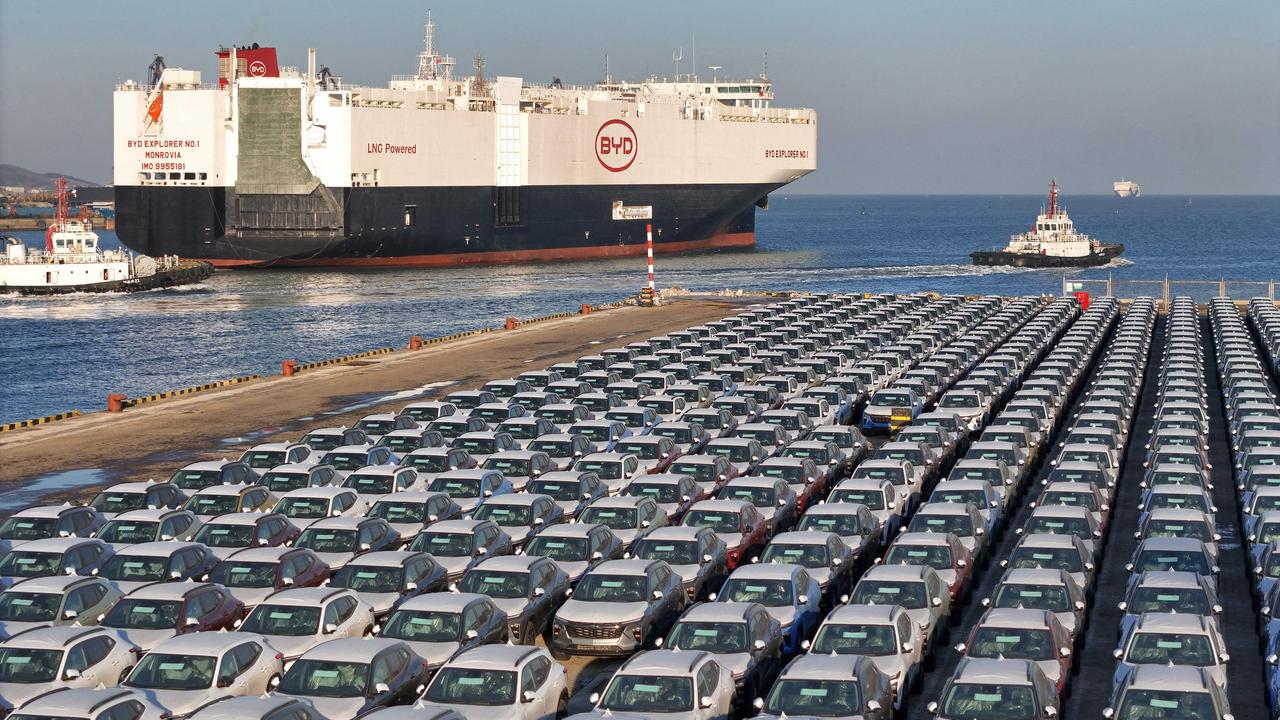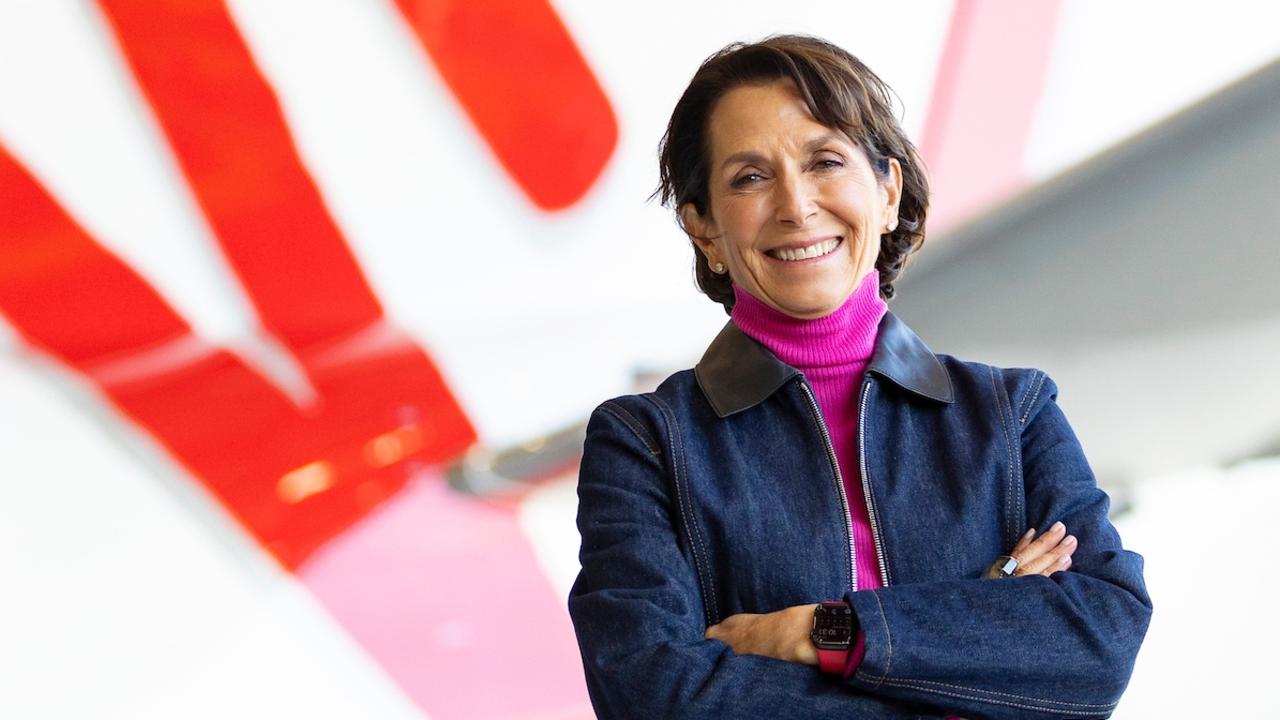What happens if you die in an Airbnb? Challenges sharing economy may not be ready for
THE tyre swing looked inviting in the ad, but an attempt to use it was fatal. The Airbnb death has raised questions over the responsibilities of the sharing economy.

Travel
Don't miss out on the headlines from Travel. Followed categories will be added to My News.
WARNING: Graphic content
THE advertisement showed a peaceful tree-filled Texan back yard with an inviting tyre swing as its centrepiece — a hallmark of “southern hospitality”.
“I always feel a sense of peace come over me when I look out at the yard,” the owner wrote in the home’s description. It was the beautifully styled yet homely photographs and inviting blurb that attracted Zak Stone and his family to rent the house on Airbnb.
There was no way they, or their hosts, could know that the idyllic setting would be the scene of Zak’s father’s untimely death, the appealing swing and tall trees instrumental in his fall.
Mr Stone, a Los Angeles-based journalist, has written on the website Matter about the tragedy that occurred while on holiday with his parents more than two years ago.
His dad had tried out the tyre swing attached to a dead tree. The tree collapsed and he landed on his head.
“I was in bed when my mom found him. Her screams brought me down to the yard where I saw the tree snapped in two and his body on the ground,” Mr Stone wrote.
“I knelt down and pulled him up by the shoulders. Blood sprayed my blue sweatshirt and a few crumpled autumn leaves. We were face-to-face, but his head hung limply, his right eye dislodged, his mouth full of blood, his tongue swirling around with each raspy breath.”
The fall immediately ended most of the man’s brain activity, Mr Stone wrote, and he died shortly after being flown to hospital when his life support was turned off.
The story is shocking for its sadness, but also for the spotlight it shines on a rarely considered component of the revolutionary sharing economy that businesses such Airbnb lead.
It raises questions about what happens when something goes wrong. What happens when you get robbed in an Airbnb rental? If you get injured? What if, as a host, your guests refuse to leave? And, as in Mr Stone’s case and a handful others, what happens when someone dies?
Similar questions have, of course, been raised over ride-sharing and task-sharing app-based businesses. What happens if you get injured in an UberX? If an Airtasker cleaner breaks your belongings?
“Could the company, with its reportedly $24 billion valuation and plans to go public, do more to ensure the safety of the properties where millions of guests stay each year?,” Mr Stone asks of Airbnb in his article.
In the case of the Stone family, Zak writes, their lawyer extracted a settlement from the hosts’ homeowners’ insurance policy which, unlike many who advertise their home on Airbnb and through similar channels, “did not deny coverage for commercial activity”. But he says most Airbnb users would not have been so lucky, and that the company does little to protect its guests.
Opponents of the growth of the sharing economy in Australia have warned that it was “only a matter of time” before a terrible, even fatal accident, shook up the pioneering industry and challenged the businesses untested responsibilities and liability measures.
Industry views from hoteliers speaking about shared accommodation and taxi representatives voicing concerns about ride-sharing are often dismissed as just dissing the competition, but as Mr Stone’s moving essay shows, there are real concerns to consider.
Carol Giuseppi, chief executive officer of peak hotel industry body Travel Accommodation Australia, said safety was a major concern for guests and hosts when renting through sharing services.
“In the case of regulated accommodation there are a whole lot of provisions that are put in place like fire prevention, emergency lighting, public announcement systems and other measures that are normally provided by a well-resourced and regulated company,” she told news.com.au.
“With unregulated accommodation, homeowners or whoever the provider is don’t have to adhere to these standards so there’s nothing in place to urge them to carry out safety checks or have these things in place. As a result of that, safety features are not guaranteed and there are no checks in place for unregulated accommodation.”
For hosts, Ms Giuseppi said, if an accident happened in the dwelling where they may be liable, they usually only had typical homeowner insurance to cover them, which is usually only effective when the homeowner was occupying the home.
Further issues arise in apartment buildings where, if a home is rented out independently on a short-term basis, the arrangement is often contravenes the requirements of the strata or body corporate.
The sharing economy has been noted as a key policy issue for NSW at least, with a review into ride-sharing, Uber and taxis under way.
In his previous role as communications minister, Prime Minister Malcolm Turnbull praised businesses like Airbnb and the wider sharing economy.
“In seven years, Airbnb has added more than one million rooms globally compared to the century-old Hilton chain’s 700,000 hotel rooms,” he told a Sydney tech conference earlier this year.
“(Airbnb) added more than 10,000 rooms to Sydney’s holiday rental market, without a single brick being laid and planning permit being approved.”
In his widely read essay, Mr Stone pointed to a case in Canada where a woman was found dead at a Taiwan property rented through Airbnb in December of 2013.
In a home-share in Argentina earlier this year, Mr Stone also notes, Airbnb refused to cover a man’s medical expenses when he was attacked by a dog left a the property, and Airbnb refused to cover his medical expenses until the media became involved.
While Australia has been mostly lucky in avoiding shared accommodation disasters, or at least publicised ones, the accommodation industry is concerned that the growth of businesses such as Airbnb could bring trouble, followed by messy legal ordeals.
“A lot of international visitors use this and the perception of a safe environment is of paramount importance to Australia. If something terrible were to happen, particularly with the world being so accessible, bad news travels fast,” Ms Giuseppi told news.com.au.
“I think governments need to for a number of reasons, and safety is one of those big reasons, catch up with the sharing economy and understand what needs to be done.
“At the moment they operate in an unregulated space. We don’t have a problem with true sharing, but this has gone beyond haring into commercialisation and governments need to have some control over it and need to understand the issues.”
While government intervention is one thing, it is also up to businesses such as Airbnb to provide a service that is as safe as possible.
In a statement provided to news.com.au, a spokesman for Airbnb said “nothing is more important to us than safety”.
“We were shocked and heartbroken when we learned about these incidents and we continue to keep these guests and their families in our thoughts. Over 60 million guests have stayed in an Airbnb and we are proud that accidents are incredibly rare,” the spokesman said.
“We know that every industry, every community, and every city grapples with safety issues and no one has an absolutely perfect record, but that’s what we strive for and we’ll keep working as hard as we know how to make our community safer for everyone.”
Originally published as What happens if you die in an Airbnb? Challenges sharing economy may not be ready for



